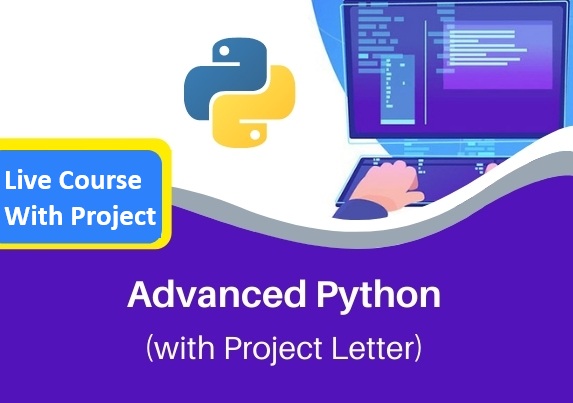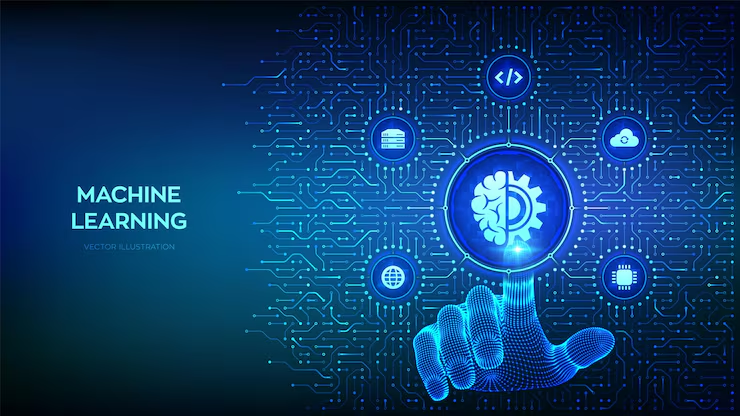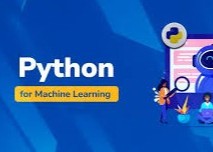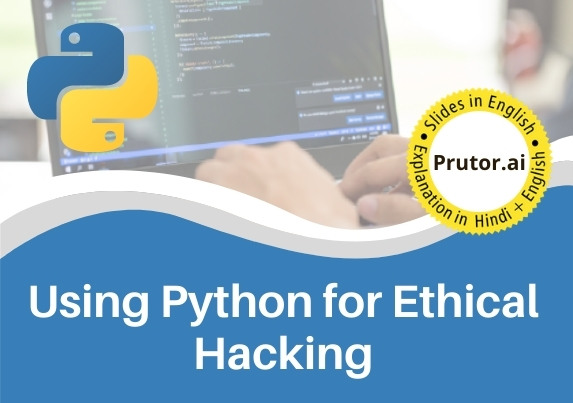Target Audience
The course can be taken by:
Students: All students who are pursuing professional graduate/post-graduate courses related to computer science / Information Technology.
Teachers/Faculties: All computer science teachers/faculties who wish to acquire new skills.
Professionals: All working professionals, who wish to enhance their skills.
Course Features
- 24X7 Access: You can view lectures as per your own convenience.
- Online lectures: Online lectures with high-quality videos.
- Updated Quality content: Content is the latest and gets updated regularly to meet the current industry demands.
Test & Evaluation
1. During the program, the participants will have to take all the assignments given to them for better learning.
2. At the end of the program, a final assessment will be conducted.
Certification
1. All successful participants will be provided with a certificate of completion.
2. Students who do not complete the course / leave it midway will not be awarded any certificate.
Basic mathematical calculation skills and logical skills
Python Advanced Course: Day-Wise Schedule (1 Hour/Day)
Module 1: Foundation of Advanced Python (Days 1-7)
- Day 1: Advanced Function Techniques - Decorators
- Function Decorators (basic syntax and use)
- Decorators with Arguments
- Class Decorators (brief introduction)
functools.wraps for preserving metadata
- Day 2: Advanced Function Techniques - Lambda & Closures
- Lambda Functions: Syntax and use with
map, filter, sorted
- Closures and the
nonlocal Keyword
- Day 3: Efficient Iteration - Generators
- Generator Functions (
yield keyword)
- Generator Expressions
yield from for delegating to sub-generators- Sending Values to Generators
- Day 4: Efficient Iteration - Context Managers
with statement and its benefits- Class-based Context Managers (
__enter__, __exit__)
contextlib.contextmanager decorator
- Day 5: Concise Data Structure Creation - Comprehensions
- List Comprehensions: Basic, Conditional, Nested
- Dictionary Comprehensions: Basic, Conditional, Key-Value Manipulation
- Set Comprehensions: Basic, Conditional
- Day 6: Advanced Iterators & Iterables - Custom Iterators
- Understanding
__iter__ and __next__
- Creating Custom Iterators from scratch
- Day 7: Advanced Iterators & Iterables -
itertools Module
count, cycle, chaingroupby, permutations, combinations (with examples)
Module 2: Advanced OOP Concepts (Days 8-14)
- Day 8: Inheritance & Polymorphism - Basics
- Multiple Inheritance and Method Resolution Order (MRO)
- Abstract Base Classes (ABCs) with
abc module
- Day 9: Inheritance & Polymorphism - Advanced
- Polymorphism and Duck Typing
- Composition vs. Inheritance (design patterns)
- Day 10: Special Methods - Object & Attribute Access
- Object Representation (
__repr__, __str__)
- Attribute Access (
__getattr__, __setattr__, __delattr__)
__getattribute__ (difference from __getattr__)
- Day 11: Special Methods - Container & Numeric Emulation
- Container Emulation (
__len__, __getitem__, __setitem__, __delitem__, __contains__)
- Numeric and Comparison Operations (brief overview)
- Day 12: Class and Static Methods
@classmethod Decorator and Use Cases@staticmethod Decorator and Use Cases- Difference and Application Scenarios
- Day 13: Metaclasses
- Understanding Type and Class Creation
- Custom Metaclasses for Class Behavior Control
- Real-world Examples of Metaclasses (brief)
- Day 14: Descriptors
- Understanding
__get__, __set__, __delete__
- Implementing Custom Descriptors
- Use Cases: Property,
classmethod, staticmethod (how they use descriptors)
Module 3: Multithreading and Multiprocessing (Days 15-19)
- Day 15: Concurrency Fundamentals
- Concurrency vs. Parallelism
- Understanding the Global Interpreter Lock (GIL)
- When to use Threads vs. Processes
- Basic Concepts: Threads, Processes, Tasks
- Day 16: Multithreading - Basics
threading Module: Thread class- Basic Thread Synchronization:
Lock, RLock
- Day 17: Multithreading - Advanced
- Advanced Thread Synchronization:
Semaphore, Event, Condition
- Thread Pools with
concurrent.futures.ThreadPoolExecutor
- Thread Synchronization and Deadlocks
- Day 18: Multiprocessing - Basics
multiprocessing Module: Process class- Inter-Process Communication (IPC):
Queue, Pipe
- Process Synchronization:
Lock, Event
- Day 19: Multiprocessing - Advanced & Best Practices
- Process Pools with
concurrent.futures.ProcessPoolExecutor
- Common Pitfalls and Best Practices
- Debugging Concurrent Code, Resource Sharing, Race Conditions
- Choosing the Right Concurrency Model
Module 4: Data Manipulation and Visualization (NumPy, Pandas, Matplotlib) (Days 20-25)
- Day 20: NumPy Fundamentals
ndarray Creation and Attributes- Array Indexing, Slicing, and Broadcasting
- Universal Functions (ufuncs)
- Linear Algebra Operations (brief)
- Day 21: Pandas Data Structures
Series and DataFrame Creation- Indexing, Selection, and Filtering Data
- Handling Missing Data (
NaN)
- Data Alignment and Arithmetic
- Day 22: Pandas Data Manipulation - Grouping & Merging
- Group By Operations (
groupby)
- Merging, Joining, and Concatenating DataFrames
- Day 23: Pandas Data Manipulation - Reshaping & Time Series
- Reshaping and Pivoting Data
- Time Series Functionality (basic)
- Day 24: Matplotlib for Visualization - Basic Plots
- Basic Plotting: Line Plots, Scatter Plots, Bar Charts, Histograms
- Customizing Plots: Titles, Labels, Legends, Colors, Styles
- Day 25: Matplotlib for Visualization - Advanced Plots
- Subplots and Multiple Axes
- Saving Plots to Files
Module 5: Databases (SQLite) (Days 26-29)
- Day 26: SQL Fundamentals
- Basic SQL Commands:
SELECT, INSERT, UPDATE, DELETE
- Table Creation (
CREATE TABLE) and Schema Definition
- Data Types and Constraints
- Filtering and Sorting Data (
WHERE, ORDER BY)
- Day 27: Python
sqlite3 Module
- Connecting to SQLite Databases
- Creating Tables and Inserting Data
- Executing Queries and Fetching Results
- Committing Transactions and Error Handling
- Day 28: Advanced SQL Concepts
- Joins (INNER, LEFT, RIGHT, FULL - conceptual)
- Subqueries (basic)
- Aggregate Functions (
COUNT, SUM, AVG, MIN, MAX)
- Indexing for Performance (brief)
- Day 29: Database Design Principles
- Normalization (1NF, 2NF, 3NF - conceptual)
- Relationships between Tables
- Primary and Foreign Keys
Module 6: Web Development (Django/Flask/FastAPI) (Days 30-35)
- Day 30: Introduction to Web Frameworks
- Understanding MVC/MVT Architecture
- Request-Response Cycle
- Choosing a Framework (Django vs. Flask vs. FastAPI - overview)
- Day 31: Flask Basics
- Setting up a Flask Application
- Routing and Views
- Create POST/GET API endpoints
- Handling Forms and Request Data (basic)
- Day 32: Django Fundamentals - Models & Admin
- Project and App Structure
- Models, Migrations, and ORM (basic)
- Admin Interface
- Day 33: Django Fundamentals - Views & Templates
- Views, URLs, and Templates (basic)
- Day 34: FastAPI Introduction
- Setting up a FastAPI Application
- Path Operations and Request Body
- Pydantic for Data Validation and Serialization (basic)
- Automatic API Documentation (Swagger UI, ReDoc)
- Day 35: Common Web Development Concepts
- RESTful API Principles
- Basic Authentication and Authorization (conceptual)
- Deployment Considerations (brief overview)
Module 7: Async Programming (Days 36-39)
- Day 36: Fundamentals of Asynchronous Programming
- Concurrency vs. Parallelism vs. Asynchrony
- Event Loops and Coroutines
async and await Keywords
- Day 37:
asyncio Library - Coroutines & Tasks
- Creating and Running Coroutines
- Tasks and Futures
asyncio.gather, asyncio.wait
- Day 38: Asynchronous Data Handling & I/O
- Asynchronous I/O Operations (e.g.,
aiohttp for web requests - conceptual)
- Asynchronous Context Managers (
async with)
- Asynchronous Iterators (
async for)
- Queues in
asyncio
- Day 39: Async Error Handling & Cancellation
- Handling Exceptions in Coroutines
- Cancelling Asynchronous Tasks
- Timeouts in
asyncio
Module 8: Web-Based GUI Frameworks (Streamlit & Gradio) (Days 40-43)
- Day 40: Streamlit - Fundamentals & Interactive Data Apps
- Introduction to Web-Based GUIs for "Desktop-like" Apps (Context, Advantages)
- Streamlit: Philosophy, Installation, "Hello World" Application
- Basic Text & Markdown Display:
st.write, st.markdown, st.header, st.subheader
- Core Input Widgets:
st.button, st.text_input, st.number_input, st.checkbox, st.radio, st.selectbox, st.slider
- Layout Management:
st.sidebar, st.columns, st.expander, st.container
- Displaying Data:
st.dataframe, st.table, st.json, st.metric
- Day 41: Streamlit - Advanced Features & Application State
- Media Elements:
st.image, st.audio, st.video
- Forms for Atomic Submissions:
st.form and st.form_submit_button
- Session State: Understanding and managing application state across reruns (
st.session_state)
- Callbacks and
on_change for dynamic widget interactions
- Caching Mechanisms:
st.cache_data, st.cache_resource for performance optimization
- Theming and Customization (brief overview of
config.toml and custom CSS)
- Day 42: Gradio - Rapid Prototyping for ML Models
- Introduction to Gradio: Philosophy, Installation, "Hello World" with
gr.Interface
- Core Concepts: Inputs, Outputs, and the Prediction Function
- Common Input Components:
gr.Textbox, gr.Number, gr.Slider, gr.Checkbox, gr.Radio, gr.Dropdown, gr.Image, gr.Audio, gr.Video, gr.File
- Common Output Components:
gr.Textbox, gr.Label, gr.Image, gr.Audio, gr.Video, gr.File, gr.HTML
- Building Multi-Input/Output Interfaces with
gr.Interface
- Basic Custom Layouts with
gr.Blocks
- Day 43: Gradio - Advanced Interactions, State & Deployment
- Event Listeners and Callbacks:
change, click, submit on components
- Managing State in Gradio: Using
gr.State for persistent data
- Queuing and Concurrency for handling multiple requests and long-running tasks
- Theming and Custom CSS in Gradio
- Choosing between Streamlit and Gradio: Use Cases, Strengths, and Weaknesses
- Deployment Strategies: Local Server, Streamlit Cloud, Hugging Face Spaces (brief overview)
- Building a Simple End-to-End Demo (e.g., a text summarizer or image filter application)
Projects: (select any four) 1: Interactive Data Explorer & Dashboard (Streamlit/Gradio) 2: Flask Task Manager with User Authentication 3: SQLite Command-Line Inventory System 4: SQLite Library Management System 5: Pandas & Matplotlib Sales Data Analyzer 6: Pandas Stock Market Data Analyzer 7: FastAPI To-Do List API 8: Django Blog with User Authentication
For inquiry call: 8953463074











